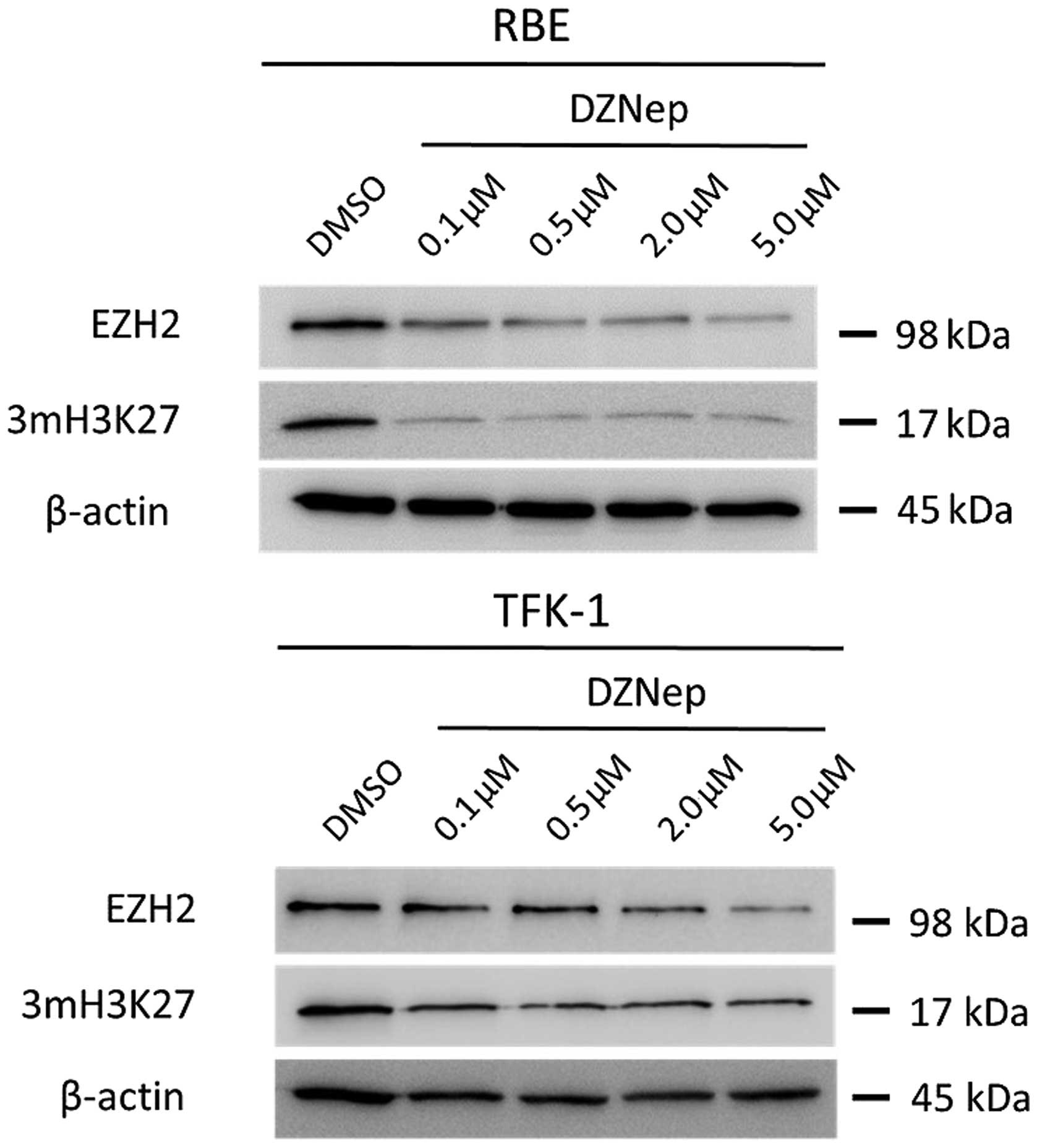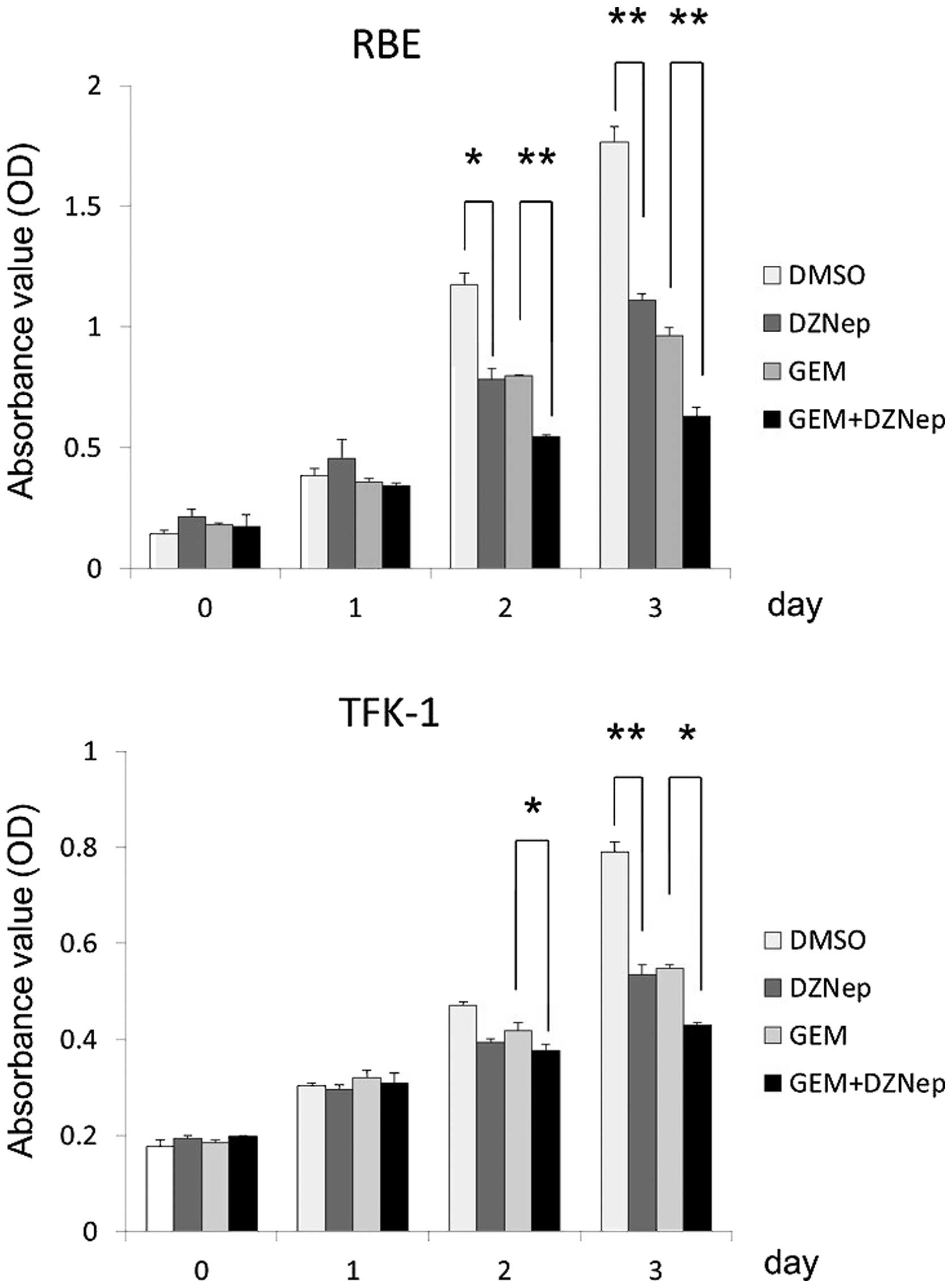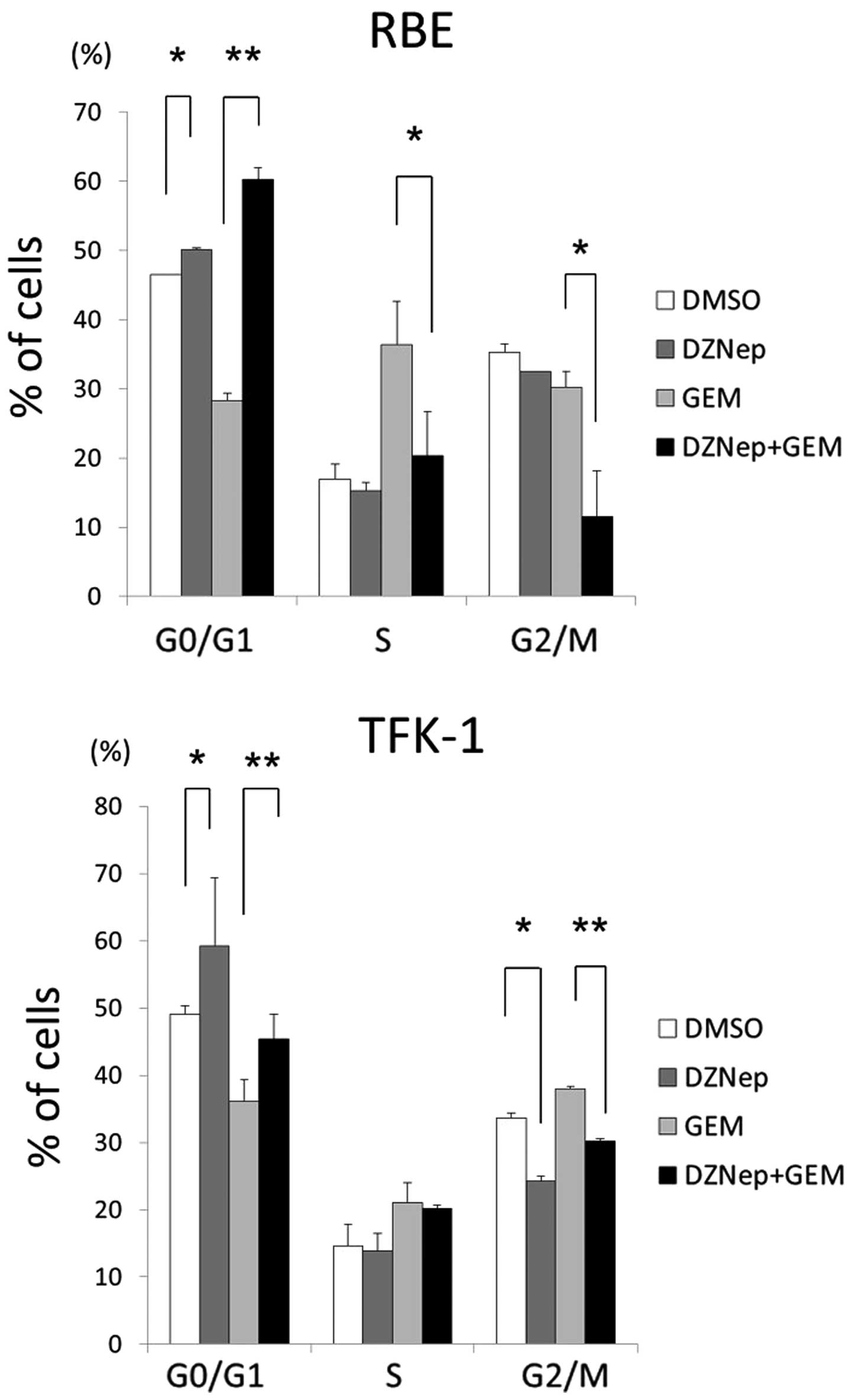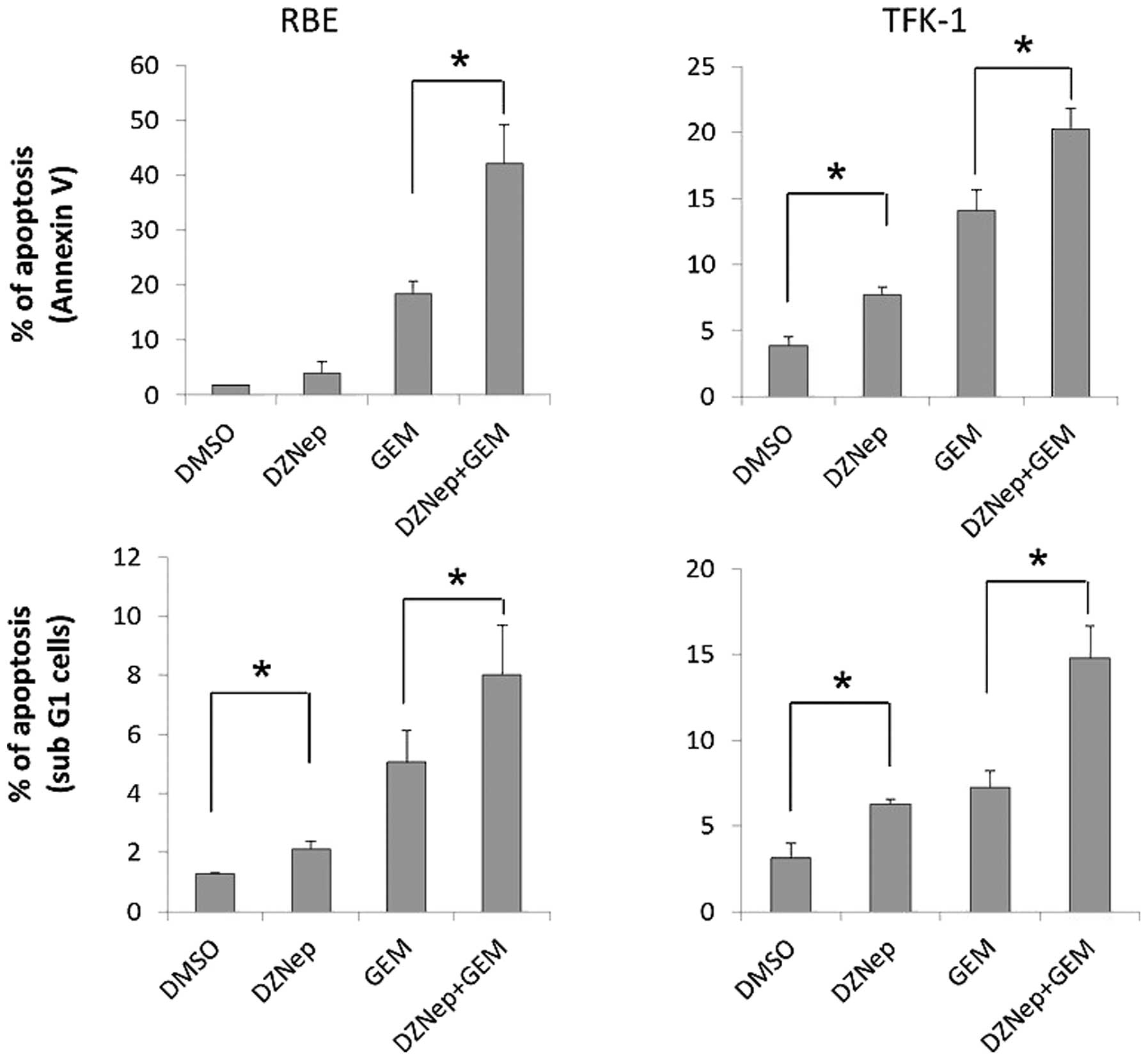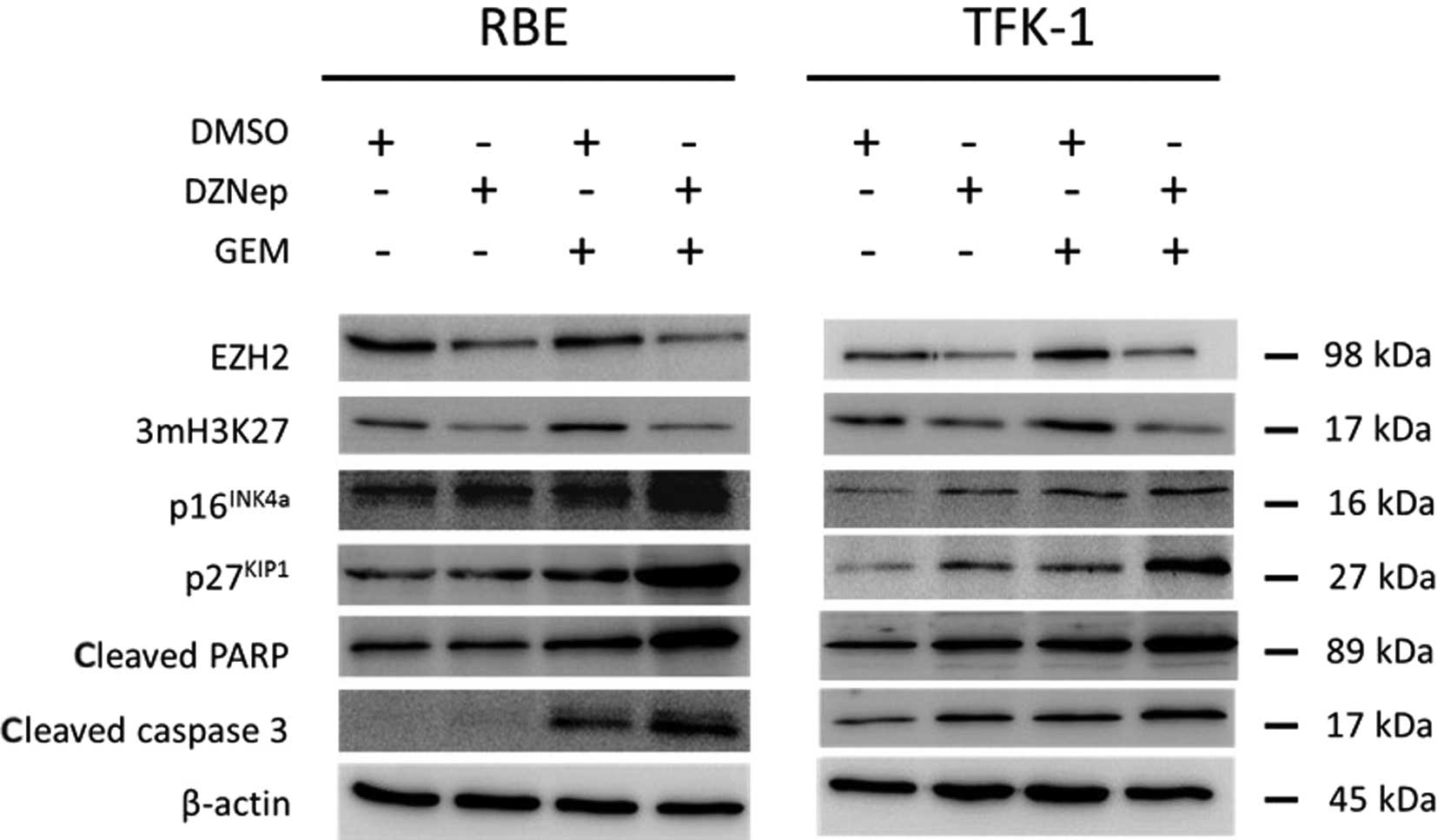|
1
|
Alpini G, McGill JM and Larusso NF: The
pathobiology of biliary epithelia. Hepatology. 35:1256–1268. 2002.
View Article : Google Scholar : PubMed/NCBI
|
|
2
|
Roberts SK, Ludwig J and Larusso NF: The
pathobiology of biliary epithelia. Gastroenterology. 112:269–279.
1997. View Article : Google Scholar : PubMed/NCBI
|
|
3
|
Welzel TM, Graubard BI, El-Serag HB, et
al: Risk factors for intrahepatic and extrahepatic
cholangiocarcinoma in the United States: a population-based
case-control study. Clin Gastroenterol Hepatol. 5:1221–1228. 2007.
View Article : Google Scholar : PubMed/NCBI
|
|
4
|
Shaib YH, El-Serag HB, Nooka AK, et al:
Risk factors for intrahepatic and extrahepatic cholangiocarcinoma:
a hospital-based case-control study. Am J Gastroenterol.
102:1016–1021. 2007. View Article : Google Scholar : PubMed/NCBI
|
|
5
|
Tao LY, He XD, Qu Q, et al: Risk factors
for intrahepatic and extrahepatic cholangiocarcinoma: a
case-control study in China. Liver Int. 30:215–221. 2010.
View Article : Google Scholar : PubMed/NCBI
|
|
6
|
Ringrose L and Paro R: Epigenetic
regulation of cellular memory by the Polycomb and Trithorax group
proteins. Annu Rev Genet. 38:413–443. 2004. View Article : Google Scholar : PubMed/NCBI
|
|
7
|
Sakamoto Y, Watanabe S, Ichimura T, et al:
Overlapping roles of the methylated DNA-binding protein MBD1 and
polycomb group proteins in transcriptional repression of HOXA genes
and heterochromatin foci formation. J Biol Chem. 282:16391–16400.
2007. View Article : Google Scholar : PubMed/NCBI
|
|
8
|
Sparmann A and van Lohuizen M: Polycomb
silencers control cell fate, development and cancer. Nat Rev
Cancer. 6:846–856. 2006. View
Article : Google Scholar : PubMed/NCBI
|
|
9
|
Cao R and Zhang Y: The functions of
E(Z)/EZH2-mediated methylation of lysine 27 in histone H3. Curr
Opin Genet Dev. 14:155–164. 2004. View Article : Google Scholar : PubMed/NCBI
|
|
10
|
Simon JA and Lange CA: Roles of the EZH2
histone methyltransferase in cancer epigenetics. Mutat Res.
647:21–29. 2008. View Article : Google Scholar : PubMed/NCBI
|
|
11
|
Bachmann IM, Halvorsen OJ, Collett K, et
al: EZH2 expression is associated with high proliferation rate and
aggressive tumor subgroups in cutaneous melanoma and cancers of the
endometrium, prostate, and breast. J Clin Oncol. 24:268–273. 2006.
View Article : Google Scholar : PubMed/NCBI
|
|
12
|
Varambally S, Dhanasekaran SM, Zhou M, et
al: The polycomb group protein EZH2 is involved in progression of
prostate cancer. Nature. 419:624–629. 2002. View Article : Google Scholar : PubMed/NCBI
|
|
13
|
Kleer CG, Cao Q, Varambally S, et al: EZH2
is a marker of aggressive breast cancer and promotes neoplastic
transformation of breast epithelial cells. Proc Natl Acad Sci USA.
100:11606–11611. 2003. View Article : Google Scholar : PubMed/NCBI
|
|
14
|
Matsukawa Y, Semba S, Kato H, Ito A,
Yanagihara K and Yokozaki H: Expression of the enhancer of zeste
homolog 2 is correlated with poor prognosis in human gastric
cancer. Cancer Sci. 97:484–491. 2006. View Article : Google Scholar : PubMed/NCBI
|
|
15
|
Wagener N, Macher-Goeppinger S, Pritsch M,
et al: Enhancer of zeste homolog 2 (EZH2) expression is an
independent prognostic factor in renal cell carcinoma. BMC Cancer.
10:5242010. View Article : Google Scholar : PubMed/NCBI
|
|
16
|
Takawa M, Masuda K, Kunizaki M, et al:
Validation of the histone methyltransferase EZH2 as a therapeutic
target for various types of human cancer and as a prognostic
marker. Cancer Sci. 102:1298–1305. 2011. View Article : Google Scholar : PubMed/NCBI
|
|
17
|
Nakagawa S, Okabe H, Sakamoto Y, et al:
Enhancer of zeste homolog 2 (EZH2) promotes progression of
cholangiocarcinoma cells by regulating cell cycle and apoptosis.
Ann Surg Oncol. Jul 26–2013.(Epub ahead of print).
|
|
18
|
McCabe MT, Graves AP, Ganji G, et al:
Mutation of A677 in histone methyltransferase EZH2 in human B-cell
lymphoma promotes hypertrimethylation of histone H3 on lysine 27
(H3K27). Proc Natl Acad Sci USA. 109:2989–2994. 2012. View Article : Google Scholar : PubMed/NCBI
|
|
19
|
Karanikolas BD, Figueiredo ML and Wu L:
Comprehensive evaluation of the role of EZH2 in the growth,
invasion, and aggression of a panel of prostate cancer cell lines.
Prostate. 70:675–688. 2010.PubMed/NCBI
|
|
20
|
Watanabe H, Soejima K, Yasuda H, et al:
Deregulation of histone lysine methyltransferases contributes to
oncogenic transformation of human bronchoepithelial cells. Cancer
Cell Int. 8:152008. View Article : Google Scholar
|
|
21
|
Ougolkov AV, Bilim VN and Billadeau DD:
Regulation of pancreatic tumor cell proliferation and
chemoresistance by the histone methyltransferase enhancer of zeste
homologue 2. Clin Cancer Res. 14:6790–6796. 2008. View Article : Google Scholar : PubMed/NCBI
|
|
22
|
Wagener N, Holland D, Bulkescher J, et al:
The enhancer of zeste homolog 2 gene contributes to cell
proliferation and apoptosis resistance in renal cell carcinoma
cells. Int J Cancer. 123:1545–1550. 2008. View Article : Google Scholar : PubMed/NCBI
|
|
23
|
Glazer RI, Hartman KD, Knode MC, et al:
3-Deazaneplanocin: a new and potent inhibitor of
S-adenosylhomocysteine hydrolase and its effects on human
promyelocytic leukemia cell line HL-60. Biochem Biophys Res Commun.
135:688–694. 1986. View Article : Google Scholar : PubMed/NCBI
|
|
24
|
Tan J, Yang X, Zhuang L, et al:
Pharmacologic disruption of Polycomb-repressive complex 2-mediated
gene repression selectively induces apoptosis in cancer cells.
Genes Dev. 21:1050–1063. 2007. View Article : Google Scholar : PubMed/NCBI
|
|
25
|
Hayden A, Johnson PW, Packham G and Crabb
SJ: S-adenosylhomocysteine hydrolase inhibition by
3-deazaneplanocin A analogues induces anti-cancer effects in breast
cancer cell lines and synergy with both histone deacetylase and
HER2 inhibition. Breast Cancer Res Treat. 127:109–119. 2011.
View Article : Google Scholar : PubMed/NCBI
|
|
26
|
Miranda TB, Cortez CC, Yoo CB, et al:
DZNep is a global histone methylation inhibitor that reactivates
developmental genes not silenced by DNA methylation. Mol Cancer
Ther. 8:1579–1588. 2009. View Article : Google Scholar : PubMed/NCBI
|
|
27
|
Fiskus W, Wang Y, Sreekumar A, et al:
Combined epigenetic therapy with the histone methyltransferase EZH2
inhibitor 3-deazaneplanocin A and the histone deacetylase inhibitor
panobinostat against human AML cells. Blood. 114:2733–2743. 2009.
View Article : Google Scholar
|
|
28
|
Jiang X, Tan J, Li J, et al: DACT3 is an
epigenetic regulator of Wnt/beta-catenin signaling in colorectal
cancer and is a therapeutic target of histone modifications. Cancer
Cell. 13:529–541. 2008. View Article : Google Scholar : PubMed/NCBI
|
|
29
|
Suva ML, Riggi N, Janiszewska M, et al:
EZH2 is essential for glioblastoma cancer stem cell maintenance.
Cancer Res. 69:9211–9218. 2009. View Article : Google Scholar : PubMed/NCBI
|
|
30
|
Avan A, Crea F, Paolicchi E, et al:
Molecular mechanisms involved in the synergistic interaction of the
EZH2 inhibitor 3-deazaneplanocin A with gemcitabine in pancreatic
cancer cells. Molecular Cancer Ther. 11:1735–1746. 2012. View Article : Google Scholar : PubMed/NCBI
|
|
31
|
Xu CR, Cole PA, Meyers DJ, Kormish J, Dent
S and Zaret KS: Chromatin ‘prepattern’ and histone modifiers in a
fate choice for liver and pancreas. Science. 332:963–966. 2011.
|
|
32
|
Chang CJ, Yang JY, Xia W, et al: EZH2
promotes expansion of breast tumor initiating cells through
activation of RAF1-beta-catenin signaling. Cancer Cell. 19:86–100.
2011. View Article : Google Scholar : PubMed/NCBI
|
|
33
|
Chase A and Cross NC: Aberrations of EZH2
in cancer. Clin Cancer Res. 17:2613–2618. 2011. View Article : Google Scholar : PubMed/NCBI
|
|
34
|
Toll AD, Dasgupta A, Potoczek M, et al:
Implications of enhancer of zeste homologue 2 expression in
pancreatic ductal adenocarcinoma. Human Pathol. 41:1205–1209. 2010.
View Article : Google Scholar : PubMed/NCBI
|
|
35
|
Chen Y, Xie D, Yin Li W, et al: RNAi
targeting EZH2 inhibits tumor growth and liver metastasis of
pancreatic cancer in vivo. Cancer Lett. 297:109–116. 2010.
View Article : Google Scholar : PubMed/NCBI
|
|
36
|
Kikuchi J, Takashina T, Kinoshita I, et
al: Epigenetic therapy with 3-deazaneplanocin A, an inhibitor of
the histone methyltransferase EZH2, inhibits growth of non-small
cell lung cancer cells. Lung Cancer. 78:138–143. 2012. View Article : Google Scholar : PubMed/NCBI
|
|
37
|
Resnitzky D, Hengst L and Reed SI: Cyclin
A-associated kinase activity is rate limiting for entrance into S
phase and is negatively regulated in G1 by p27Kip1. Mol Cell Biol.
15:4347–4352. 1995.PubMed/NCBI
|
|
38
|
Girard F, Strausfeld U, Fernandez A and
Lamb NJ: Cyclin A is required for the onset of DNA replication in
mammalian fibroblasts. Cell. 2067:1169–1179. 1991. View Article : Google Scholar : PubMed/NCBI
|
|
39
|
Faris JE and Zhu AX: Targeted therapy for
biliary tract cancers. J Hepatobiliary Pancreat Sci. 19:326–336.
2012. View Article : Google Scholar : PubMed/NCBI
|
|
40
|
Thomas MB: Biological characteristics of
cancers in the gallbladder and biliary tract and targeted therapy.
Crit Rev Oncol Hematol. 61:44–51. 2007. View Article : Google Scholar : PubMed/NCBI
|















